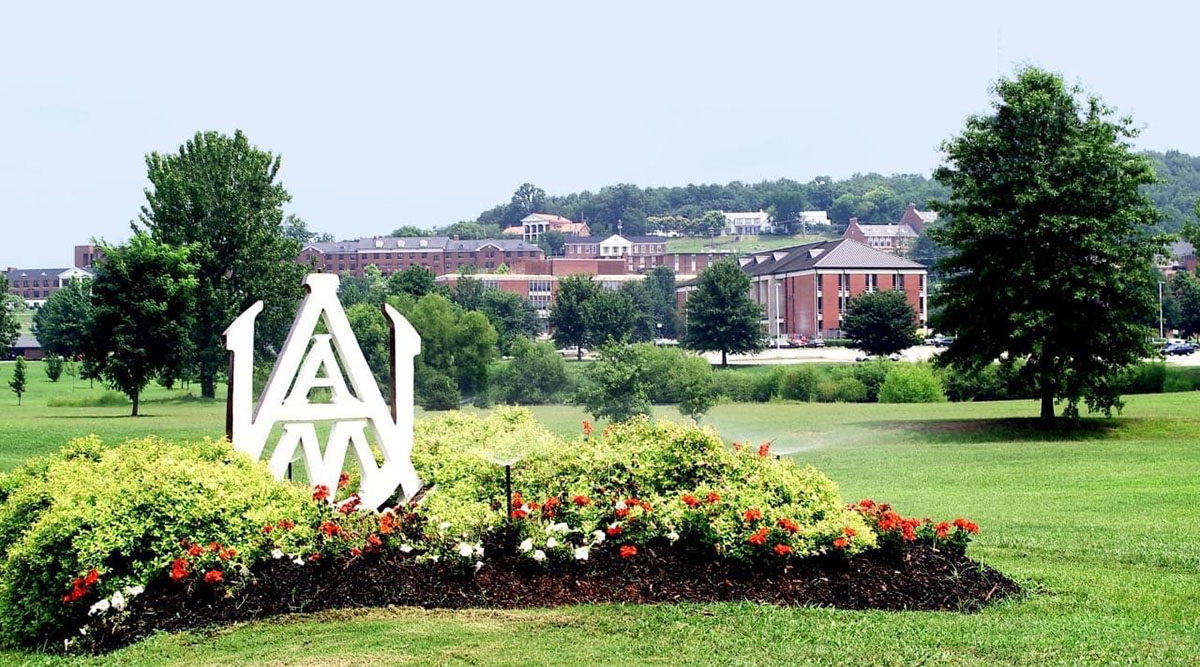
HBCUs and the Science of Food
As young people narrow down their options for 'what comes next' after high school, many find Historically Black Colleges and Universities are the right fit for the next stage in their educational career.

Photo Courtesy of Alabama A&M University.
Deciding where to go to college is one of the most monumental decisions of a person’s life. With more than 5,000 colleges and universities in the U.S. alone, the choices seem endless. Among the many factors young people consider when narrowing down their selections are cost, degree program, size, location, opportunities to study abroad, extracurricular activities, and composition of student body. For some, Historically Black Colleges and Universities (HBCUs) are the right fit for their pursuit of higher education.
HBCU Origins
Historically Black Colleges and Universities (HBCUs) were established in the mid-1800s to provide undergraduate and graduate educational opportunities to people of African descent. At that time, Black students were not welcome in existing public and private institutions of higher learning, greatly limiting their educational opportunities.
The first HBCU—the African Institute later known as Cheyney University–was established in Pennsylvania in 1837. Its mission was to teach free Black people skills for gainful employment. Three additional HBCUs were founded in the 1850s. The majority of HBCUs were founded from 1865-1900, with the greatest number formed two years after the Emancipation Proclamation was signed in 1867.
HBCUs Today
Today, 101 institutions of higher education are recognized as HBCUs. Among those, three HBCUs have undergraduate food science programs approved by the IFT Higher Education Review Board (HERB). These programs meet the rigorous IFT Undergraduate Education Standards for Degrees in Food Science.
- Alabama A&M University (AAMU): AAMU was the first HBCU with an IFT-HERB approved food science program, housed in the Department of Food and Animal Sciences. The department offers degree programs leading to a Bachelor of Science in food science, Master of Science in food science, and PhD in food science. Students pursuing graduate degrees can choose from 6 concentrations including molecular/nutritional biochemistry/toxicology, food chemistry/biochemistry, food product development, food safety and processing, molecular food biotechnology, and animal health.
- North Carolina A&T State University (NCAT): The largest HBCU based on student population in the U.S., NCAT is the newest IFT-approved HERB food science program. The Food and Nutritional Sciences program within NCAT’s College of Agriculture and Environmental Sciences offers a Bachelor of Science in food science, a Bachelor of Science in human nutrition, and a Master of Science in food and nutritional sciences.
- Tuskegee University: The Department of Food and Nutritional Sciences at Tuskegee University offers Bachelor of Science degrees in food science, nutritional science, didactic program in dietetics, public health nutrition, and dual degrees in food science and biology or nutritional science and biology. The Department also offers a Master of Science in food science or nutritional science and is part of the PhD program in integrative biosciences.
Why Choose a Food Science Program at an HBCU?
With so many options available, what makes a food science program at an HBCU an attractive option for students entering their college years? According to Shantrell Willis, a research scientist and adjunct food science faculty member at AAMU, where she obtained her bachelor’s, master’s, and PhD in food science with a concentration in nutritional biochemistry, HBCUs offer an encouraging, nurturing environment, providing a ‘home away from home’ to students.
“I chose to attend an HBCU because I wanted to be immersed in the HBCU experience and culture, while obtaining a stellar education in STEM,” Willis shared. “As a former HBCU student and now grad, I made life-long connections with peers and was able to build rapport with faculty and staff that impacts me greatly, still to this day.”
Although HBCUs were originally founded to educate Black students, the National Center for Education Statistics shows their diversity has increased over time. In 2018, non-Black students made up 24 percent of enrollment at HBCUs, compared with 15 percent in 1976.
According to Willis, HBCUs offer an abundance of benefits and opportunities for individuals of all races, backgrounds and socio-economic status. “As you step onto the campus of an HBCU, there is a feeling of acceptance and inclusion. The morale of students increases as they become more and more engulfed in the university’s history and humble beginnings. Our university (AAMU) was founded by a former enslaved person, Dr. William Hooper Councill, who is a true personification of our current motto—Start Here, Go Anywhere.”
A 2020 recipient of the IFT Emerging Leaders Network Award and past recipient of the IFTSA Excellence in Leadership Award (Graduate), Willis has been involved in IFT at the local, regional, and national levels for several years, currently serving as a director-at-large of the IFT South Eastern Section. She is also a former member of the IFT New Professionals Work Group. She highly recommends the organization to students and professionals—both new and seasoned—working in the science of food.
“With an ever-increasing environment of diversity, equity, and inclusion, there is a place for all in this organization. I would and do recommend IFT to foodies, as it is a hub for scholarships, internships, current food trends, publications, networking, and more in the science of food. IFT has a way of bringing a sense of belonging and community to this vastly growing field.”
References
The Institute of Education Sciences, National Center for Education Statistics. "Historically Black Colleges and Universities." https://nces.ed.gov/fastfacts/display.asp?id=667
Thurgood Marshall College Fund. “History of HBCUs.” https://www.tmcf.org/history-of-hbcus/
Walker, Larry J. “10 Reasons Why Attending an HBCU Was a Good Idea.” HBCU Lifestyle. 25 August 2015. https://hbculifestyle.com/attending-an-hbcu-was-a-good-idea/
